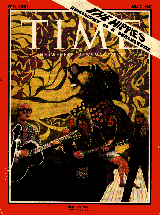Bibliography: Hoistad, Ragner, Cynic Hero and Cynic King(1949).
The Cynics admired SOCRATES for his self-sufficiency and his indifference to unnecessary luxury and possessions. A good life, they taught, involves a return to nature, giving up the decadence of civilized urban life and living simply and strenuously. Their name is generally supposed to come from the Greek kynikos, "doglike," presumably a commentary on their severely critical philosophic style; or it may be derived from Cynosarges, the name of the gymnasium in which the group met under Antisthenes. The Cynics are important in the history of philosophy because of their influence, both in Greece and Rome, on SOICISM. Robert S. Brumbaugh
Bibliography: Copleston, F. J., A History of Philosophy: Greeceand Rome (1962; repr. 1993); Dudley, D. R., A History of Cynicism (1937; repr. 1980); Rankin, H. D., Sophists, Socratics, and Cynics (1983).
Ah, the synch, my friends. Doesn't this sound like the values of Henry David Thoreau as well as some of the Beat Generation or the Digger faction of the Hippies. Looks like Bohemians have been around for quite some time.
 In case you're
wondering how I made this discovery, it's from Time Magazine. They
had a cover story on the Hippies dated July 7, 1967 (Vol. 90 No.1) that
attempted to explain the philosophy of the Hippies, and it was probably
the best article ever written about the Hippies that ever appeared in the
"establishment" press. On the other hand, I don't think Life
did a single article on the Hippies, which is strange since we're such
a photogenic bunch of people. Actually, I think they did have a story on
one of the poster artists and I think they did photograph some of the Pranksters
and Kesey's bus (in black and white, see Tom Wolfe's Acid Test book)
but that story seemed to wind up on the cutting room floor. Most of the
other articles on the Hippies were very negative indeed, but the Time article
was the least hostile and you should definitely try to find a copy of it
for your archives.
In case you're
wondering how I made this discovery, it's from Time Magazine. They
had a cover story on the Hippies dated July 7, 1967 (Vol. 90 No.1) that
attempted to explain the philosophy of the Hippies, and it was probably
the best article ever written about the Hippies that ever appeared in the
"establishment" press. On the other hand, I don't think Life
did a single article on the Hippies, which is strange since we're such
a photogenic bunch of people. Actually, I think they did have a story on
one of the poster artists and I think they did photograph some of the Pranksters
and Kesey's bus (in black and white, see Tom Wolfe's Acid Test book)
but that story seemed to wind up on the cutting room floor. Most of the
other articles on the Hippies were very negative indeed, but the Time article
was the least hostile and you should definitely try to find a copy of it
for your archives.
.
Believe it or not, here's some sites that deal with all this.